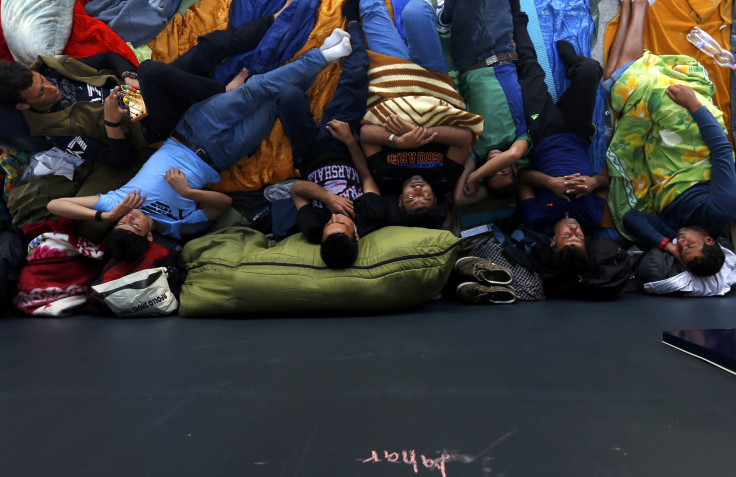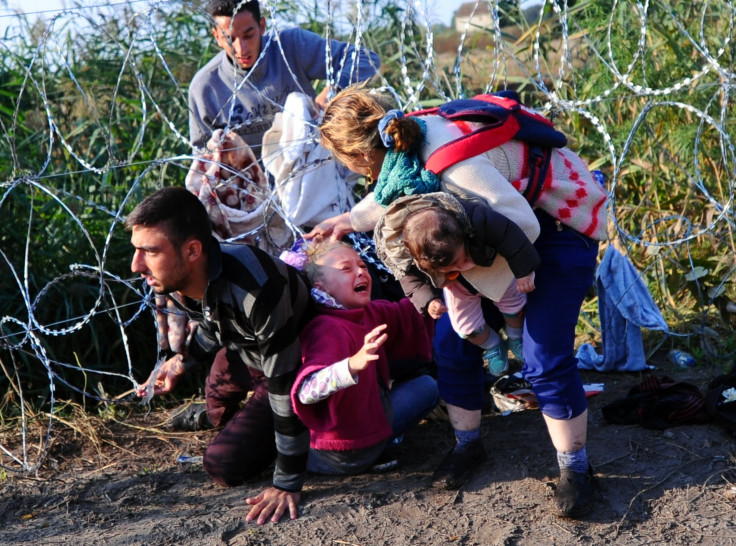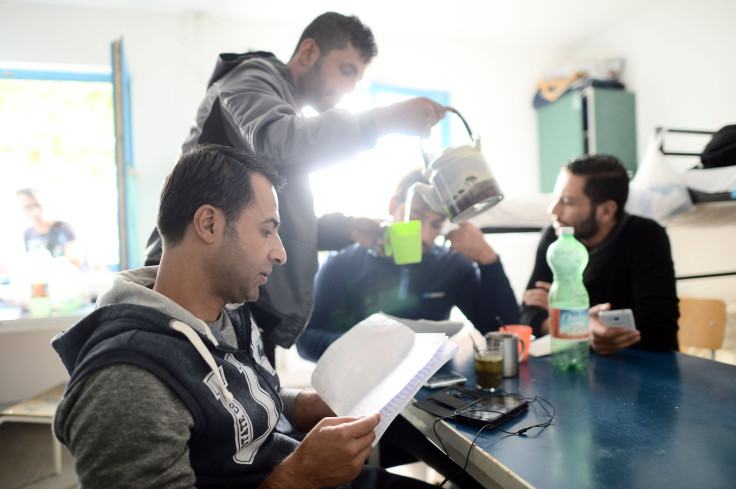Europe Migrant Death Toll Update: Breaking Down the Numbers Of The European Border Crisis

Horrifying discoveries off the coast of Libya and in Austria this week have underscored the human costs of the ongoing migrant crisis in Europe -- and the lack of a cohesive policy solution across the European Union. Fifty-one bodies were found on a ship off Libya, along with 439 survivors, Reuters reported Wednesday, and more than 20 decomposing bodies were found in a truck in Austria on Thursday.
Thousands of people have fled war-torn regions and poor economic conditions across the Middle East and Africa in recent months, searching for a better life in Western Europe. With the crisis showing no signs of abating, here’s a look at the current numbers and policy stances.
Breaking Down the Numbers
In 2014, the European Union agency responsible for overseeing borders reported that more than 280,000 people had illegally crossed borders, with that number expected to be surpassed this year. The majority of illegal crossings in 2014 were by Syrians fleeing civil war and took place in the central Mediterranean. The trend has continued into this year: Over the last 365 days, 3,573 migrants have died trying to enter Italy, Greece and Spain by sea.
Influxes of migrants have continued in recent days with more than 10,000 people arriving in Serbia. The U.N. said 300 to 400 people were crossing the Greek-Macedonian border on a daily basis before crossing into Serbia.
The International Organization for Migration (IOM) reported that as of Tuesday, deaths from sea crossings attempting to reach Europe have already hit 2,373. The total number in 2014 was 3,281. On average, 10 migrants are dying every day attempting to reach EU member Mediterranean states, including Greece, Spain and Italy. As the seasons change, the IOM has stated it is worried about an uptick in deaths.
Possible Policy Solutions
European leaders are continuing to discuss possible policy solutions for the crisis. In April, a European Commission panel issued a 10-point plan, but the crisis has continued. The U.N. refugee agency has continued to stress the need for the EU to quickly address the problem.
“If we fight traffickers, protect victims and put in place a system to allow refugees to apply for asylum legally, we will succeed,” said António Guterres, head of the refugee agency.
However, countries have not acted in a unified manner. In Hungary, where approximately 2,000 people are arriving daily, the government has constructed a razor-wire fence along its border with Serbia, and has sent police to the area. The police have fired tear gas to prevent migrants from crossing, the Guardian reported. Hungary may now send troops to the area.

Macedonian police fired stun grenades last week near its border with Greece, injuring people in the process, the Guardian reported. Migrants pass through Central European countries on their way to countries such as Austria, France, Germany and Sweden.
Germany said it is expecting up to 800,000 migrants this year, the BBC reported. Chancellor Angela Merkel and the German government have struggled to deal with overcrowded detention centers and far-right parties that have attacked migrants.
Germany this week started ignoring an EU policy that says refugees must seek asylum in the first European country in which they set foot. The policy move allows Syrians to seek asylum in Germany. Germany and France have been pushing for a unified European asylum policy, with migrant populations being more evenly spread between countries, and a unified registration, accommodation and healthcare system.
“There are moments in our European history when we face an exceptional situation,” France’s President François Hollande said this week. “Today is an exceptional situation but it is an exceptional situation that will continue.”

© Copyright IBTimes 2024. All rights reserved.






















